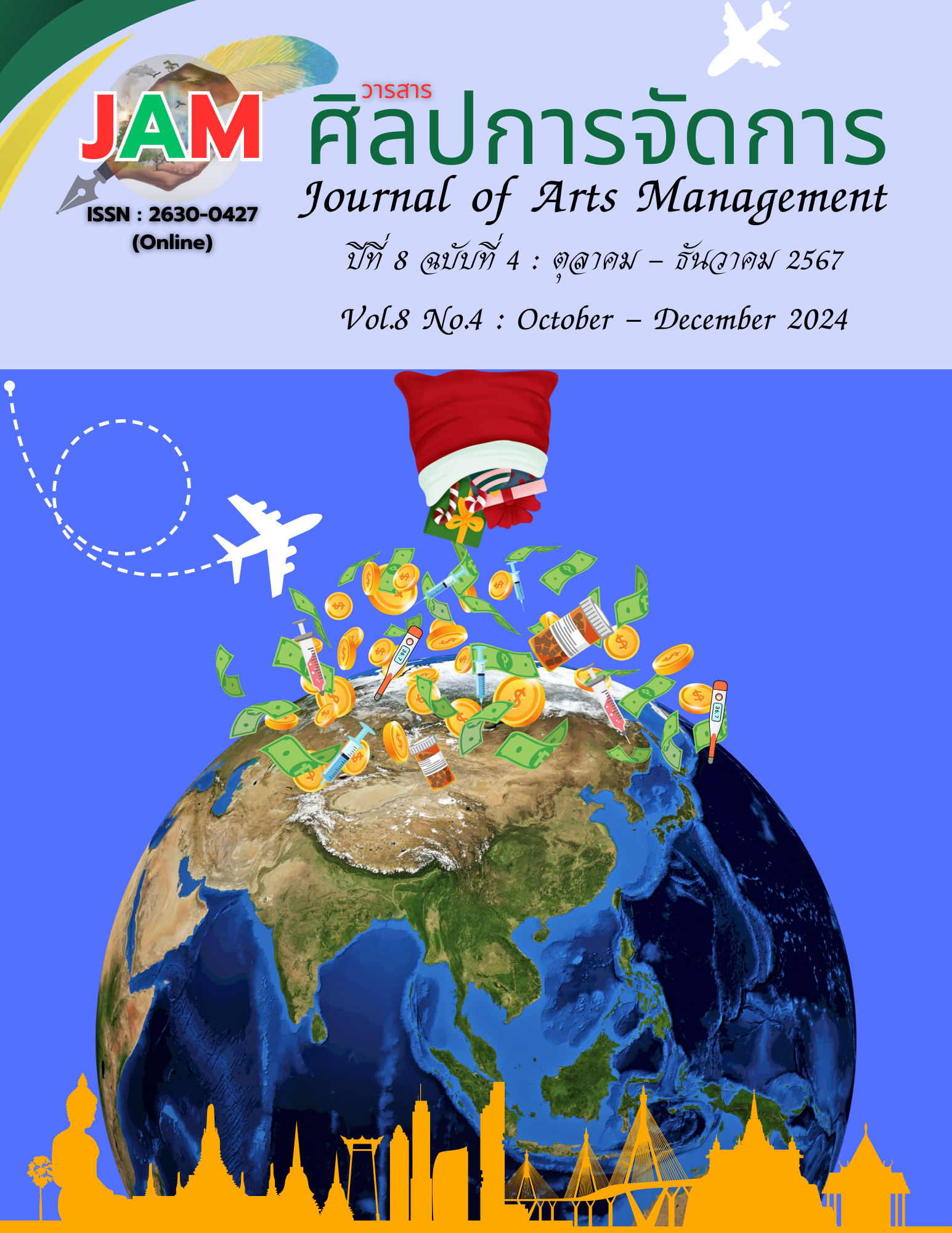Local Community Potential Development for Grassroots Economic Building Under the Philosophy of Sufficiency Economy, Banna Subdistrict, Banna District, Nakon Nayok Province
Main Article Content
Abstract
This article aimed to (1) study characteristics of agriculture under the Philosophy of Sufficiency Economy (2) study success conditions in agriculture under the Philosophy of Sufficiency Economy (3) study agriculture patterns under the Philosophy of Sufficiency Economy, and (4) develop local potential for grassroots economy building under the Philosophy of Sufficiency Economy. This research is a qualitative method. The instruments for collecting data include a structured interview form and a focus group. And then analyzing data by content analysis.
The research results were found as follows: 1. Characteristics of agriculture under the philosophy of Sufficiency Economy found that the Philosophy of Sufficiency Economy has been applied to reduce expenses; there are income increases, economic household spending, a savings group, and self-reliance. 2. The success conditions of agriculture under the Philosophy of Sufficiency Economy are found to include moderation, reasonableness, good immunity, knowledge, and morality. 3. Agriculture patterns under the Philosophy of Sufficiency Economy are performance under the principles of moderation, reasonableness, good immunity, morality, and knowledge. Farmers or local wisdom have been driven and supported by community leaders and the public sector. Additionally, resources are allocated proportionally, leading to efficient use of these resources. This approach helps reduce the costs of processing agricultural products and enables farmers to learn and develop their skills. 4. Foster the potential of local communities for grassroots economic development based on the Philosophy of Sufficiency Economy. This involves enhancing knowledge and understanding, promoting local capabilities, developing skills and expertise, encouraging collaboration, building networks, creating markets, discovering new channels for product distribution, and promoting agricultural tourism.
Article Details

This work is licensed under a Creative Commons Attribution-NonCommercial-NoDerivatives 4.0 International License.
Views and opinions appearing in articles in the Journal of Arts of Management It is the responsibility of the author of the article. and does not constitute the view and responsibility of the editorial team I agree that the article is copyright of the Arts and Management Journal.
References
Community Organization Development Institute (Public Organization). (2008). In Community Organization Council Act 2008. Community Organization Development Institute.
Mangkhang, C. et al. (2016). A study project of the royal project's knowledge transfer and capacity building for highland communities. Highland Research and Development Institute (Public Organization), Thailand.
Muangyai, A. (2016). Development approach to enhancing the potential of community and local in the twenty-first century. EAU Heritage Journal Social Science and Humanity, 6(3), 12-26. https://so01.tci-thaijo.org/index.php/EAUHJSocSci/article/view/70878
Nawa, P. (2019). The roles of community leaders of sustainability local economy[Independent Study, Ramkhamhaeng University].
Piansang, C. (2011). Community economy development according to sufficiency economy guide, Case study: Suvannabum District Roi-et Province. Faculty of Economic, Chiang Mai University.
Prommatat, C. (2021). Community brand building grass root economy strength promotion. Trade Policy and Strategy Office.
Seeniang, P., Chimmanee, A., Thungngern, J., & Kummanee, K. (2019). Living based on philosophy of sufficiency economy of farmers in Ban Wai Nieo Community, Tha Maka District, Kanchanaburi Province. King Mongkut’s Agricultural Journal, 37(3), 527-537.
https://li01.tci-thaijo.org/index.php/agritechjournal/article/view/217241
Sinvimon, S., & Wiratnipawan, W. (2016). Development of agricultural administration of Phra Nakhon Si Ayuthaya province according to the sufficiency economy philosophy. EAU Heritage Journal Social Science and Humanities, 6(2), 228-241. https://so01.tci-thaijo.org/index.php/EAUHJSocSci/article/view/67164
Tamphiya, P. (2012). 1997 Economy crisis with sufficiency economy philosophy. The Crown Property Bureau, Thailand.
Unaromlert, T., Junpla, J., Sukjairungwattana, T., Suksai, S., & Malinin, W. (2015). Development of the innovation creation model of sufficiency economy wisdom to create a sustainable competitive for processed products of community enterprise group in lower central Thailand. Silpakorn Education Research Journal, 7(2), 79-92. https://so05.tci-thaijo.org/index.php/suedureasearchjournal/article/view/40668


